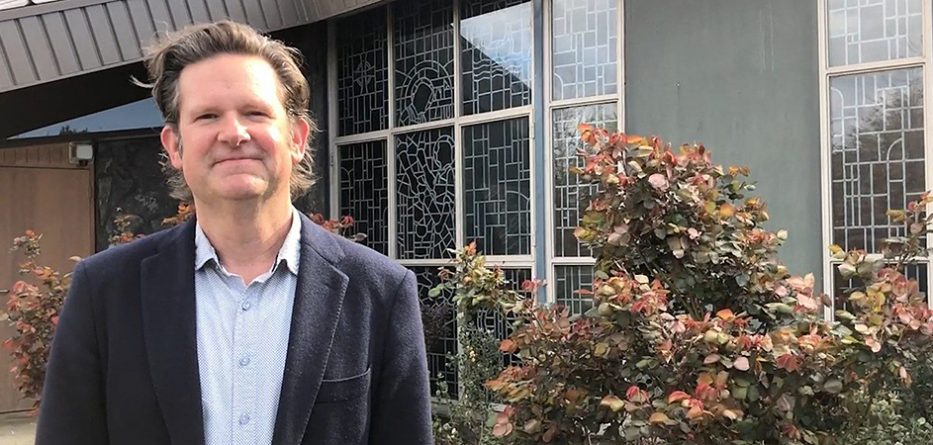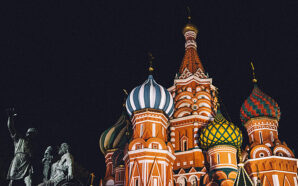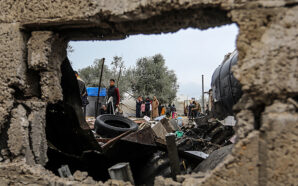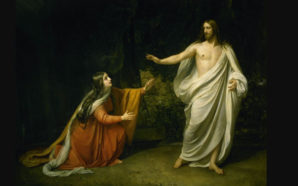Care for our common home is at the centre of Knox Peden’s conversion. Originally from the United States, Professor Peden moved to Australia about ten years ago. Having grown up Presbyterian, he experienced a period of personal and professional reflection which led him to embrace Catholicism in July 2019. He is a historian and a philosopher, and a Laudato si’ Animator in the Global Catholic Climate Movement, organising conversations with fellow parishioners in Canberra on the message contained in Pope Francis’s Encyclical, as well as prayer walks in nature.
The path of conversion to Catholicism that primarily included care for our common home was the path taken by Knox Peden, a Texan from Dallas who had moved to Australia in 2011. Thanks to Pope Francis’s teaching in the Encyclical Laudato si’, he put his relationship with creation at the centre of his own human and professional life. “I took to heart the call to ecological conversion,” he explains to Vatican News. “It’s also built on the idea of integral ecology which builds on other forms of Catholic teaching about, you know, the integral nature of our community, and our family and our society.” The Pope, he says, “encourages us to expand these ideas of relationship and communion to all of creation and realise that our life is based in relationships, it is essentially comprised of relationships and that we have a responsibility to maintain those relationships.” Among these relationships, Peden believes that, “the most important is our relationship to creation, to our common home on this planet.”
Experience as a Laudato si’ Animator
A historian and philosopher, and professor of European Enlightenment Studies at the University of Queensland, Knox Peden is one of over 10,000 Laudato si’ Animators throughout the world formed by the Global Catholic Climate Movement. These are people who, for the most part, were already dedicated in their own local parishes, associations, or religious traditions and who feel particularly called to live integral ecology and Laudato si’, committing themselves to service in their own communities.
Within his own parish community, dedicated to St Joseph in O’Connor, a suburb of Canberra, Peden organises conversations among the faithful around the message of the 2015 Papal document, as well as prayer walks in nature. Though “not an activist by nature,” he clarifies, “I never turn down the chance to talk about ideas I’m passionate about.” During the Season of Creation, from last 1 September to 4 October, he participated in the redevelopment of his parish’s flowerbeds and gardens, collaborating with Erin, a fellow-parishioner who guided the group in the planning and planting.
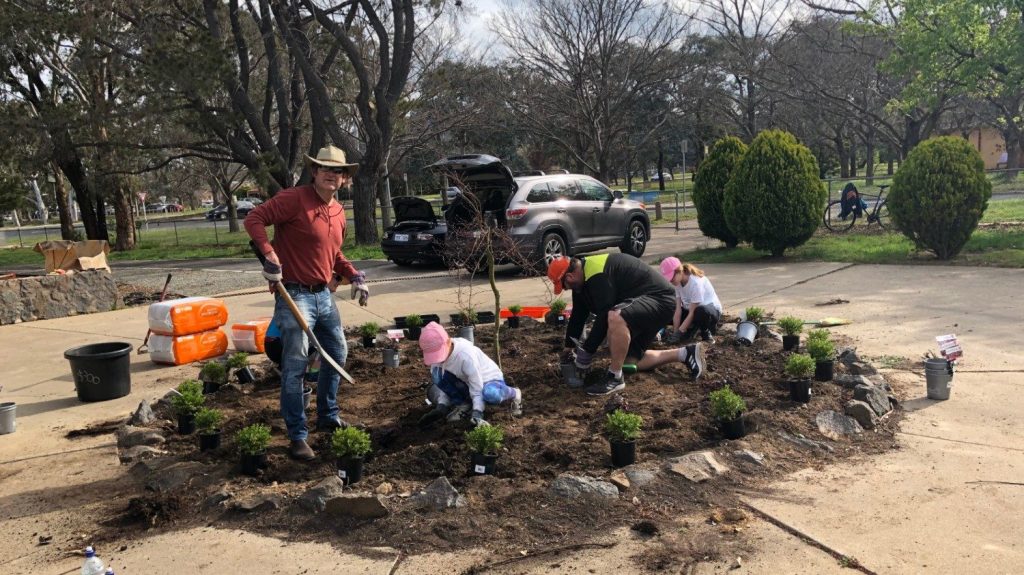
Parishioners are seen redeveloping the flowerbeds and gardens at St Joseph’s Church in O’Connor, Canberra. Image: Vatican News
Pope Francis’s teaching
Peden grew up in the United States as a Presbyterian. Later on, he did not practise his faith for many years. Among the various aspects that Peden highlights regarding his conversion to Catholicism, which came about in July 2019, is that of the Pope’s “perspective” regarding the climate crisis and his teaching in general: “the more I read, the more I was drawn into his teaching,” he recounts. Talking about the course of his conversion, Peden says, “It had been coming on for several years, through developments in my academic work and also in my personal life. Convergence all around, no doubt due to God’s grace.” Becoming a father, he confesses “was a catalyst for change.”
A new discovery
“I was baptised and confirmed Presbyterian when I was 12 years old. My family”, Knox recalls, “wasn’t religious, but the church and its community were very important to me at that time. So when I started going to services again several years ago, I initially went to a Presbyterian church in Canberra.” Then, during a trip to Paris in 2018 with his family, he crossed the threshold of a Catholic Church to attend a Eucharistic Celebration. “I found the experience intoxicating, and for the remainder of our trip I went to as many Masses as I could. I’d lived in Paris for four years as a PhD student and walked by all these churches countless times without ever going in. It was a new world for me, a new discovery.”
Fires in Australia
The devastating fires that hit Australia last year pushed him to become active in the safeguarding of creation. Vast fires burned uninterruptedly for 240 days, devouring the forests in the south-east of the country in particular, destroying millions of hectares of wooded areas, causing scores of deaths, as well as the loss of livestock, homes and businesses. The Global Catholic Climate Movement points out that forest fires have been occurring in Australia for decades, but that climate change increases both their likelihood and intensity. The fact that this is happening in the United States and regions in the Amazon is also testimony of a planet in flames.
“The fires were horrifying”, the historian from Canberra recalls: “days of smoke that had us wearing masks well before the pandemic arrived” of COVID-19.
A social-environmental crisis
When he discovered Laudato si’, he felt a “shock of recognition”, he explains, recognising himself in the critique the Pope made regarding modernity and the current crisis. He is referring to Pope Francis’s exhortation regarding the environment as well as the relationship between nature and the society that inhabits it, because, as the Pope writes in the Encyclical, “We are faced not with two separate crises, one environmental and the other social, but rather with one complex crisis which is both social and environmental” (Par 139). The climate crisis, Peden confirms, “is part of a more general crisis stemming from our comportment to the world and to ourselves. Even if the planet were not ravaged by storms and fires, our commitment to consumption and waste – what Pope Francis calls ‘throwaway culture’ – would be self-destructive” anyway.
Ecological conversion and evangelisation
Based on his experience, the University of Queensland professor reads Laudato si’ as a means of ecological conversion as well as a resource for evangelisation. “Ecological conversion is a matter of opening and expanding our sense of dependency. Spiritual conversion tells us we depend on God; ecological conversion extends the idea to tell us we depend on creation, what God has made.” Today, “having everything at hand gives us an illusion of self-sufficiency. But,” he emphasises, “it’s still just that: an illusion. We do depend on others, even if we don’t realise it.”
The COVID-19 crisis
As has been said a few times, the world-wide coronavirus crisis has highlighted how, in our exposure to vulnerability, we are more interdependent, connected. “The stratifications of our society have only become more apparent as the pandemic has worn on,” Peden observes. He defines the virus as an “equal-opportunity offender”. Therefore, he adds, “if it’s the more vulnerable who are suffering – and it is – we are forced to confront our failures to protect” those in need. The coronavirus, he points out, has basically shown, “our capacity to change our behaviours actually quite quickly when we’re faced with a crisis and when there is the political will to do so.”
“When we’re faced with the challenge that confronts the whole community we see that the community really can act together to take care of each other.” To put it in the words of the Encyclical, this is so, “because all creatures are connected, each must be cherished with love and respect, for all of us as living creatures are dependent on one another.”
With thanks to Vatican News and Giada Aquilino, where this article originally appeared.




